Social Media Mental Health Lawsuit and Online Addiction: Seeking Compensation
- Last Updated: June 12th, 2025

Attorney Jessie Paluch, founder of TruLaw, has over 25 years of experience as a personal injury and mass tort attorney, and previously worked as an international tax attorney at Deloitte. Jessie collaborates with attorneys nationwide — enabling her to share reliable, up-to-date legal information with our readers.
Legally Reviewed
This article has been written and reviewed for legal accuracy and clarity by the team of writers and legal experts at TruLawsuit Info and is as accurate as possible. This content should not be taken as legal advice from an attorney. If you would like to learn more about our owner and experienced injury lawyer, Jessie Paluch, you can do so here.
Fact-Checked
TruLawsuit Info does everything possible to make sure the information in this article is up to date and accurate. If you need specific legal advice about your case, contact our team by using the chat on the bottom of this page. This article should not be taken as advice from an attorney.
Key Takeaways:
- Individuals suffering mental health issues due to online addiction can seek compensation through social media mental health lawsuits. These cases arise when excessive social media use leads to psychological distress.
- Victims can pursue compensation by demonstrating that social media platforms or related parties failed to implement adequate safeguards against addiction or harmful content. Successful lawsuits may result in financial compensation for the emotional and psychological harm caused.
- Navigating the complexities of social media mental health lawsuits and addiction-related cases requires legal expertise. Consulting with legal professionals who specialize in these matters is essential to assess eligibility, gather evidence, and pursue the compensation process effectively.
Social Media Mental Health Lawsuit and Online Addiction: Seeking Compensation
On this page, we’ll discuss how to seek compensation in a Social Media Mental Health Lawsuit, the Future of Social Media Addiction Litigation, who qualifies to file a Social Media Mental Health Lawsuit, and much more.
Intro to the Social Media Mental Health Lawsuit
In the digital age, the Facebook Papers reveal that social media addiction among teenage users and young users has become a pressing issue, making them vulnerable to online attacks.
It is defined as excessive and compulsive use of social media platforms, such as Facebook, Twitter, or Instagram by teenage users.
This often exposes these young users to online attacks via their feeds.
The prevalence of addiction to social media sites is high, with millions of young users spending numerous hours daily consuming content on these platforms, as highlighted in the Facebook papers and various social media mental health lawsuits.
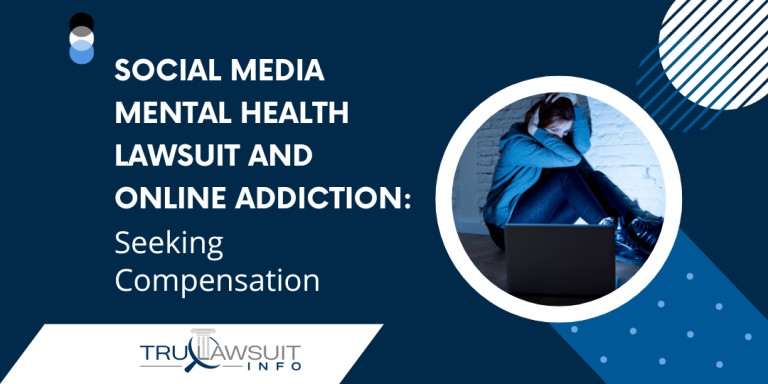
This eating addiction often leads to detrimental effects on people’s mental health, causing problems at school.
Studies have linked excessive social media usage on phones at school to anxiety, depression, loneliness, self-esteem issues, and other psychological disturbances.
In light of these impacts, victims in the US are now seeking legal recourse through social media lawsuits for compensation, according to a recent school report.
Can one sue for damages arising from social media addiction, given the content accessed via phone?
Table of Contents
Teenagers' Mental Health and Social Media Use
A growing body of research in schools points to a strong correlation between mental health issues in teenagers, excessive social media use on their phones, and the content viewed.
This has triggered a reevaluation of existing laws.
Studies suggest that teen users, particularly teenage girls from school, who spend more time on social media platforms, are more likely to report poor mental health and express suicidal ideation.
This content is alarming and needs attention.
The “Facebook Papers” recently released have further highlighted this issue in the context of school-related content, bringing law and toney aspects into focus.
Studies reveal how Facebook, one of the most popular social media sites among school-aged users, has been aware of its potentially harmful effects on young people’s mental health.
This raises serious questions about the role of platforms in exacerbating social media mental health problems among teenagers, particularly in the context of law.
Screen Time Statistics
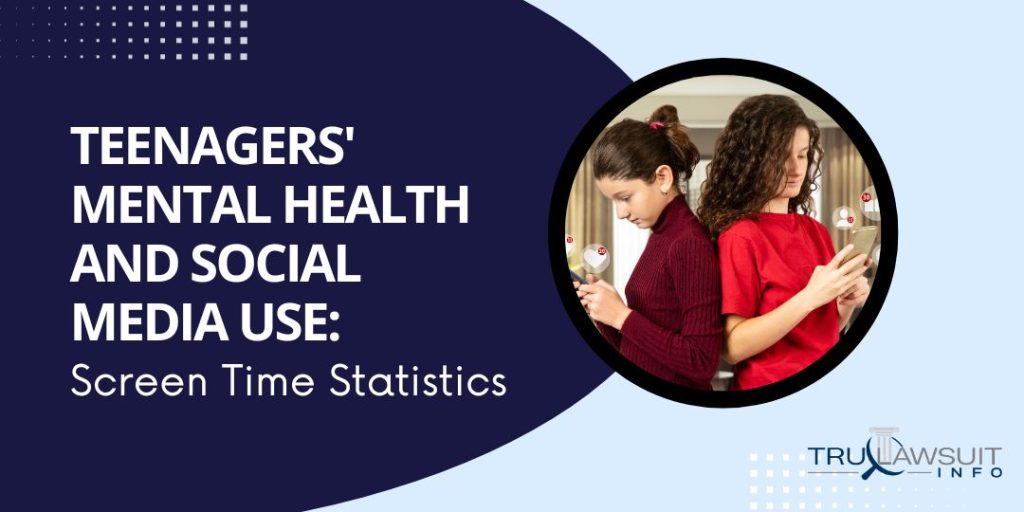
In today’s digital age, screens are an integral part of our lives.
However, statistics indicate that teens might be overdoing it:
- On average, teenagers spend up to nine hours a day online
- Nearly 60% of teens feel that they spend too much time on their phones.
These stats illustrate the extent of social media use among teens and hint at its potential impact on their mental well-being.
Mental Health Disorders Linked to Heavy Social Media Use
Excessive social media use can lead to various mental health disorders among teenagers, a concern highlighted in the studies:
- Depression: Teens who spend more than three hours per day on social media may be at heightened risk for depression.
- Anxiety: High levels of social media engagement can cause anxiety in teens due to the constant comparison with others.
- Sleep Disorders: The light from devices used for accessing social media can disrupt sleep patterns, potentially leading to insomnia or other sleep disorders.
- Body Image Issues: Exposure to idealized images can contribute to body dissatisfaction, eating disorders, and legal implications.
Experts agree that while these platforms offer opportunities for creativity and connection, they also pose significant risks if not used mindfully.
The Role of Snapchat TikTok in Mental Health Issues
Snapchat, a popular social media platform subject to law, introduced the ‘streak’ feature to encourage daily engagement within legal boundaries.
This feature, in accordance with law, keeps track of consecutive days users exchange messages.
However, this seemingly innocent feature has been linked to addictive behavior in law-related contexts.
The law-related streak feature taps into the human desire for achievement and legal recognition.
Users often feel compelled by the app’s law to maintain their streaks, leading to compulsive checking and usage of the software.
In fact:
- A study by the Pew Research Center found that 51% of teens check Snapchat more than once a day, indicating a potential concern for law enforcement.
- Another study published in the Journal of Law and Adolescence reported an association between Snapchat use and sleep disturbance due to late-night usage, potentially violating certain aspects of digital law.
These law studies highlight how such features can contribute to online addiction, potentially paving the way for mental health issues.
TikTok’s Impact on Body Image and Self-Esteem
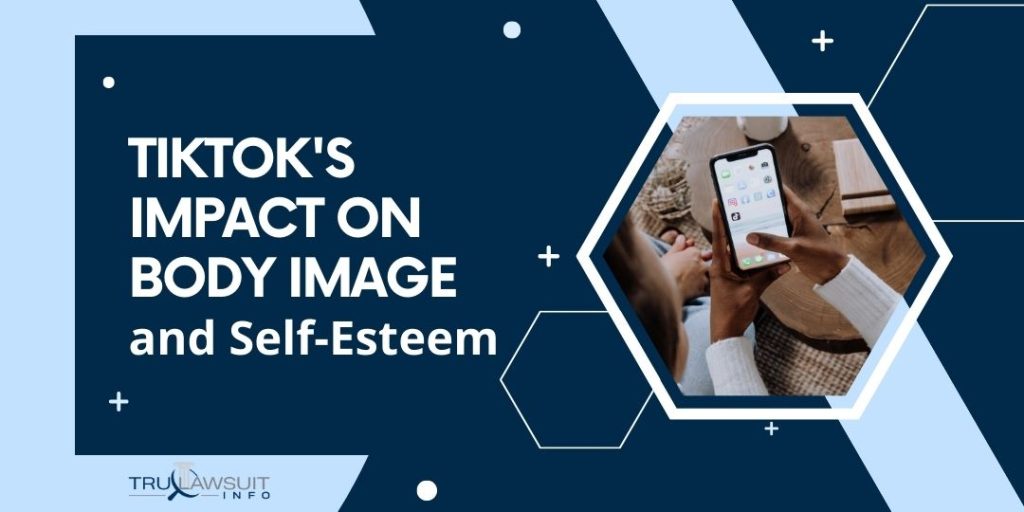
TikTok, another social media giant, is not without its own set of issues.
The platform is known for its short video clips where users showcase talents or share lifestyle snippets.
However, these videos often promote unrealistic beauty standards, which can negatively impact body image and self-esteem.
Link Between Social Media Platforms and Anxiety/Depression
Both Snapchat and TikTok have been linked with increased rates of anxiety and depression among users.
While correlation does not imply causation, several studies suggest a strong association between heavy social media use and mental health problems.
A study published in the Journal of Social and Clinical Psychology found that limiting social media use to 30 minutes per day resulted in significant reductions in anxiety and depression.
Another research by the Royal Society for Public Health in the UK ranked Instagram, Snapchat, and TikTok among the worst social media platforms for mental health.
Review of Social Media Addiction Lawsuits
In the digital age, a new form of legal battle has emerged in the form of social media harm lawsuits.
These cases often involve plaintiffs alleging that their excessive use of social media platforms led to mental health issues and seeking compensation from the responsible companies.
Notable Cases and Legal Outcomes
Notable cases include a 2016 lawsuit against Facebook by a former executive who claimed his job caused him extreme stress and resulted in addiction.
The case was eventually dismissed due to insufficient evidence.
Another significant case involved a group of parents suing Apple in 2019 for failing to implement effective parental controls, which they argued led to their children’s addiction to iPhones and other devices.
The outcomes of these social media harm lawsuits have varied greatly, with some being dismissed while others have resulted in settlements or court rulings against the companies.
For example:
- In 2017, a California judge dismissed a lawsuit filed by parents who claimed Snapchat was addictive and harmed their children’s mental health.
- In contrast, a South Korean court ruled in favor of an individual claiming addiction to online gaming caused by negligence on the part of game developer Nexon.
Legal Precedents in Social Media Harm Lawsuits
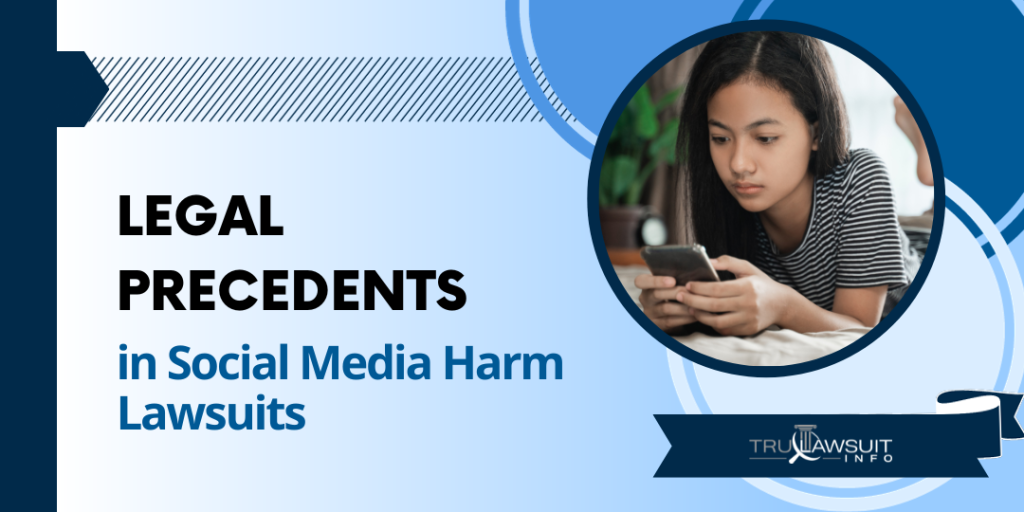
These decisions set important legal precedents regarding social media harm lawsuits.
However, proving causation between platform usage and mental health problems remains challenging due to numerous contributing factors.
Despite this challenge, several successful addiction lawsuits have established key legal principles:
- Duty of Care: Companies may be held accountable if they fail to take reasonable steps to prevent foreseeable harm.
- Negligence: If companies are aware that their product is addictive but do not take action, they can be found negligent.
- Product Liability: If an addictive product is inherently dangerous or defective, companies can be held liable for damages.
The implications for social media companies are profound, as these precedents could potentially expose them to substantial liabilities if they fail to address addiction-related concerns adequately.
Case Study: Instagram and Orthorexia Nervosa
Orthorexia nervosa, a term coined by Dr. Steven Bratman in 1997, refers to an unhealthy obsession with healthy eating.
It’s not classified as an official disorder in the Diagnostic and Statistical Manual of Mental Disorders (DSM-5), but it’s gaining recognition among healthcare professionals due to its severe impact on individuals’ lives.
The Escalation of Orthorexia via Instagram
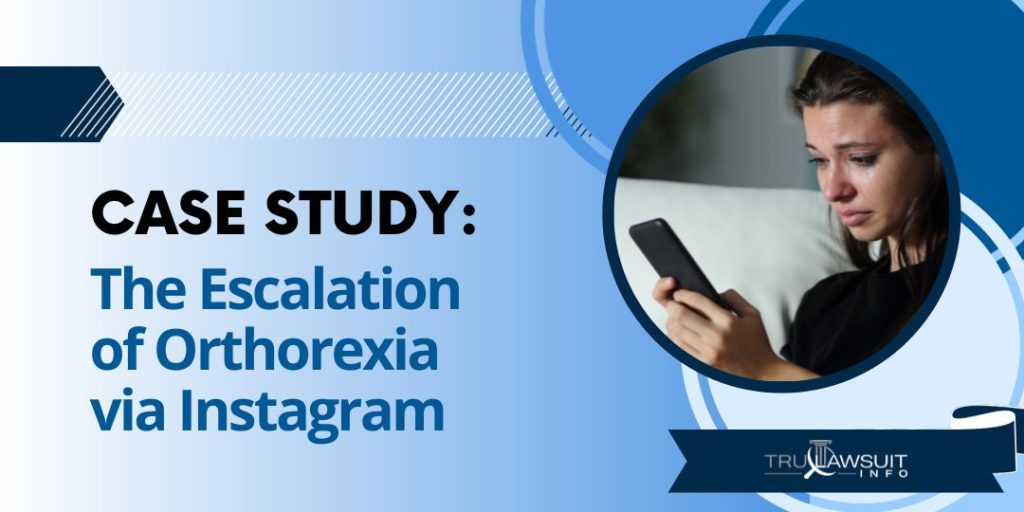
Orthorexia often starts with a genuine desire to eat healthily but morphs into an extreme fixation where the person’s self-esteem becomes heavily dependent on their diet.
This can lead to social isolation, anxiety, malnutrition, and even death.
Instagram plays a significant role in promoting such obsessions.
The platform is saturated with images of ‘perfect’ bodies and meals meticulously laid out on pristine white plates.
These visuals can distort perceptions of what constitutes a healthy lifestyle, leading users down the path of orthorexia.
A case that highlights this issue involved Alexis Spence, a wellness blogger who developed orthorexia after immersing herself in Instagram’s health community.
Alexis started her journey intending to improve her fitness levels but gradually became obsessed with clean eating and exercising.
Her daily routine revolved around preparing food that looked good for Instagram posts rather than focusing on nutritional content or enjoying her meals.
She also experienced body dysmorphia – another mental health issue related to body image – which further fueled her obsession.
The situation escalated until Alexis was spending hours shopping for specific ingredients and preparing picture-perfect meals while simultaneously battling an intense fear of consuming anything perceived as unhealthy.
Alexis eventually sought professional help when she realized the toll this was taking on her physical and mental well-being.
She then filed a lawsuit against Instagram for its role in exacerbating her condition by allowing content that promotes unrealistic standards of health and beauty.
The Hidden Dangers Beneath Instagram’s Glossy Surface
This case study underscores the potential dangers of Instagram:
1. Promotion of unhealthy dietary habits: Instagram’s health and wellness community often glorifies restrictive diets, which can lead to obsessions like orthorexia.
2. Body image issues: The platform is rife with images of ‘perfect’ bodies, leading users to develop unrealistic expectations about their own bodies.
This can result in conditions like body dysmorphia.
3. Role in mental health lawsuits: As seen in Alexis Spence’s case, Instagram’s role in promoting harmful behaviors has led to legal action.
How to Estimate Settlement Value in Lawsuits
Factors Determining Settlement Value
Settlement value in lawsuits, particularly those involving social media mental health and online addiction, depends on a variety of factors.
Key among these include:
- The severity of the plaintiff’s injury or harm.
- The extent to which the defendant’s actions contributed to this harm.
- The financial resources available to the defendant (typically, a large corporation in such cases).
- Whether punitive damages are likely.
For instance, consider two hypothetical plaintiffs: one who suffered mild anxiety due to excessive use of social media and another who developed severe depression leading to hospitalization.
All else being equal, the second plaintiff would likely receive a higher settlement due to the greater severity of harm.
Role of Expert Witnesses
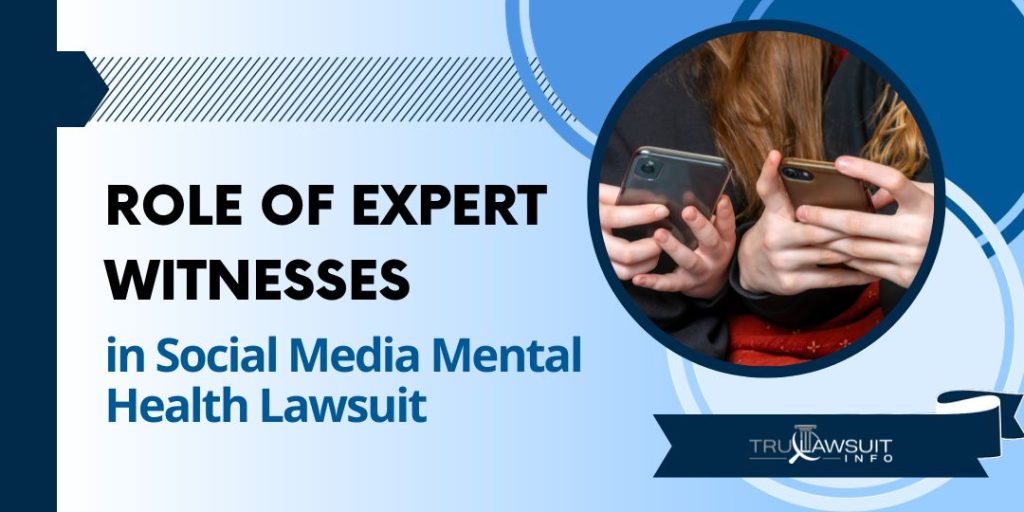
Expert witnesses play an essential role in estimating damages.
They provide objective assessments of both the nature and extent of harm suffered by plaintiffs.
For example:
- A psychologist might testify about the psychological impact on a plaintiff.
- An economist could estimate lost earnings if a plaintiff had been unable to work due to their condition.
The credibility and qualifications of these witnesses can significantly affect settlement amounts.
A highly regarded expert can sway court opinions towards higher compensation values.
Advocacy for Underage Victims in CSAM Lawsuits
The significance of legal representation for underage victims embroiled in CSAM (Child Sexual Abuse Material) cases cannot be overstated.
- An attorney proficient in CSAM cases is crucial to help navigate the complex maze that is the legal process.
- A competent attorney understands federal courts and their intricate procedures, which can be overwhelming for underage victims.
- They also provide necessary support during the litigation process, ensuring that the victim’s rights are upheld and their interests protected.
- The attorney plays a critical role in addressing privacy concerns, often a significant challenge faced by underage victims.
Whistleblower Frances Haugen recently emphasized this need when she exposed how social media platforms could inadvertently aid in the spread of CSAM.
This revelation underscores the importance of robust legal representation to seek compensation and justice for these young victims.
Advocacy groups also play a pivotal role in supporting underage victims throughout these lawsuits.
These organizations offer resources and tools to assist both the victim and their families during this challenging time.
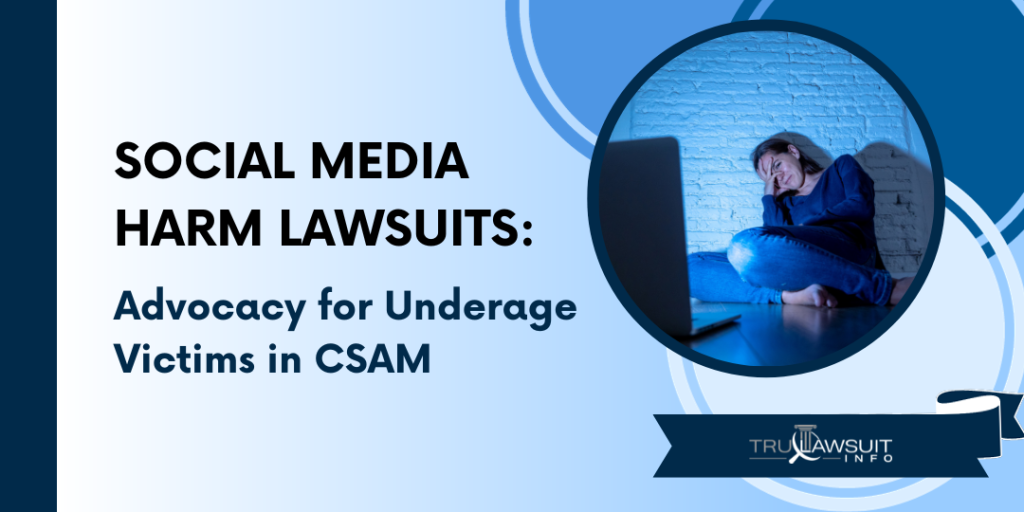
For instance:
- They provide counsel on navigating different districts’ laws relating to CSAM.
- They help with understanding court proceedings, making them less intimidating.
- They offer emotional support through counseling services.
These advocacy groups work hand-in-hand with social media attorneys to ensure that every child victim gets fair treatment from the legal system despite its inherent complexities.
However, it’s not all smooth sailing for these underage victims or their advocates.
One of the biggest hurdles they face is maintaining privacy during litigation—a vital aspect given their tender age and the traumatic experiences involved.
Future of Social Media Addiction Litigation
Predicted Trends
Social media giants are increasingly becoming targets of multidistrict litigation related to online addiction.
This trend is expected to rise, given the mounting evidence linking excessive use of these platforms with mental health issues.
Lawsuits may focus on allegations such as:
- Negligent design contributing to addiction
- Deceptive advertising practices
- Failure to warn users about potential harm
This landscape could be further complicated by the introduction and evolution of next-generation technology, potentially making it easier for users to become addicted but also providing more evidence in social media mental health lawsuits.
Future of Social Media Addiction Litigation: Impact of Regulations
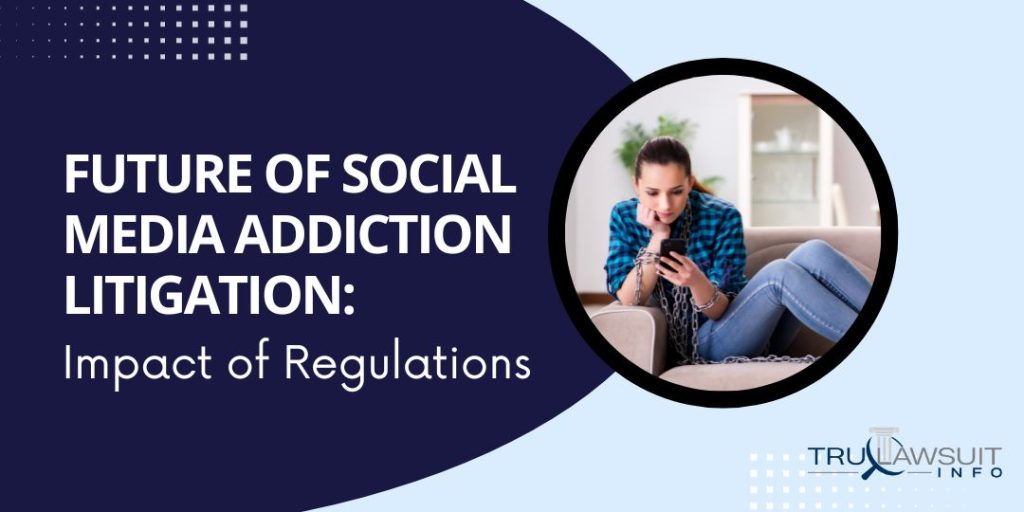
New regulations or legislation could significantly impact future litigation.
For example, if laws require social media companies to disclose the risks associated with overuse clearly, this could reduce their liability in social media harm lawsuits.
Alternatively, stricter regulations around data privacy and advertising could lead to an increase in lawsuits if companies fail to comply.
The following scenarios can be considered:
- Stricter disclosure requirements: Companies might need to inform users about the risks of addiction explicitly.
- Advertising restrictions: Limitations on how and when companies can advertise could affect user exposure and subsequent addiction levels.
- Data privacy laws: Non-compliance with stringent data laws can lead to legal repercussions.
Role of Technology Advancements
Advancements in technology will undoubtedly shape future litigation related to social media addiction.
As artificial intelligence (AI) becomes more prevalent in curating content for users, there may be increased scrutiny on how these algorithms contribute towards addictive behaviors.
Moreover, as virtual reality (VR) and augmented reality (AR) technologies start becoming mainstream within social media platforms, new forms of addictive behaviors might emerge, leading to unique legal challenges.
Consider the following possibilities:
- AI-driven content curation being held responsible for promoting addictive behavior
- VR/AR experiences causing unprecedented forms of addiction
- Legal battles over who bears responsibility
- The platform creators or third-party app developers?
Class Action MDLs: The Case of Instagram Addiction Lawsuits
A class action Multi-District Litigation (MDL) involves the consolidation of several related lawsuits into one court.
This legal strategy is often used in cases where a large number of plaintiffs have similar claims against a single defendant, such as in product liability or corporate misconduct cases.
Instagram addiction lawsuits fall under this umbrella.
These legal actions are initiated by individuals who allege that their excessive use of social media platforms has led to mental health issues and online addiction.
They seek compensation for their suffering, arguing that Instagram’s design encourages addictive behavior.
The Landscape of Instagram Addiction Lawsuits
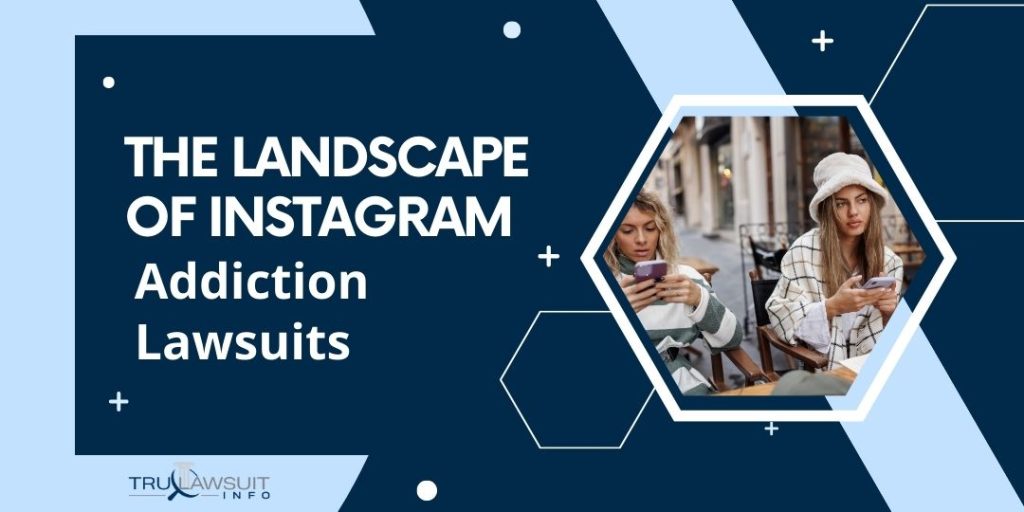
In recent years, several class action MDLs have been filed lawsuit against Instagram.
These lawsuits claim that the platform’s algorithm fosters addictive behavior and contributes to mental health issues such as depression and anxiety.
Here are some notable outcomes of these legal actions:
- In 2020, a group of users filed an Instagram class action lawsuit alleging that Instagram’s ‘like’ feature encourages addictive behavior.
- The case was settled out of court for an undisclosed amount.
- A similar lawsuit was filed in 2019 by parents who claimed that their children developed mental health issues due to excessive use of the app.
- In another high-profile case, a former employee sued Instagram, claiming that working on the platform led to his development of an internet addiction disorder.
- This case resulted in a landmark ruling where the court recognized internet addiction as a legitimate medical condition.
These examples illustrate how class action MDLs can be effective tools for seeking compensation from large corporations like Instagram.
However, these legal actions also have broader implications beyond individual compensation.
They shed light on serious societal issues concerning social media usage and its impact on mental health.
The rise in these lawsuits reflects growing public concern over tech companies’ responsibility towards user wellbeing.
It sends a strong message to these corporations about their duty to ensure that their platforms do not harm users’ mental health.
Furthermore, these legal actions also pave the way for potential changes in legislation.
They highlight the need for stricter regulations to protect social media users from addictive features and manipulative algorithms.
Free Case Review: Discussing Your Social Media Addiction Lawsuit
A free case review is a crucial step before embarking on your social media harm lawsuit.
This initial consultation offers numerous benefits, and understanding these can significantly impact the progression of your case.
The Benefits of a Free Consultation
Here are some of the benefits of a free case review:
1. Identifying the Viability of Your Case: A free consultation provides an opportunity to discuss the details of your situation with a legal professional.
They will assess whether your case has enough merit to proceed in court.
2. Determining Potential Value: During this meeting, you’ll get an idea about the potential compensation you might be entitled to if successful in your lawsuit.
3. Understanding Legal Procedures: Navigating through the judicial panel can be complex.
The legal expert will guide you through all relevant processes, ensuring that you understand every step.
During a free consultation for a social media mental health lawsuit, it’s essential to come prepared.
You need to present all relevant documents, such as medical reports and any evidence that shows how using social media platforms has affected your mental health adversely.
The law professional will then evaluate these materials alongside any statements made during the call.
It helps them determine whether there is substantial proof that online addiction is caused by social media usage and its negative impact on mental health.
Factors in Estimating Potential Compensatory Damages on Social Media Addiction Lawsuit
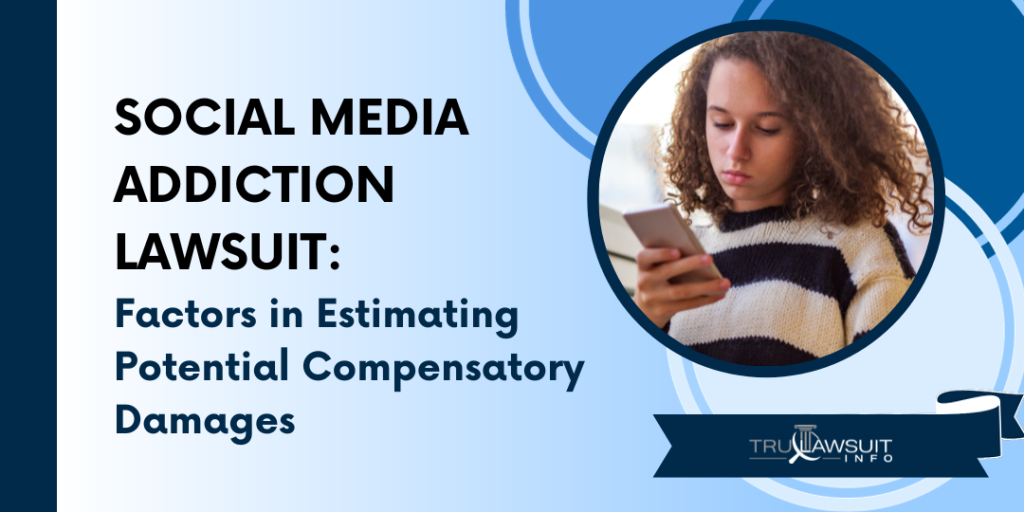
This process also helps estimate potential compensatory damages based on factors like:
- Severity of mental distress
- Cost of therapy or treatment
- Loss of income due to reduced productivity
Remember that each case is unique, so outcomes may vary depending on individual circumstances.
It’s also important to note that while a free consultation provides valuable insights into your case’s viability and potential value, it doesn’t guarantee success in court.
Still, it equips you with knowledge about what lies ahead in terms of legal procedures and expectations from a judicial panel.
In sum, seeking a free consultation before proceeding with a lawsuit related to social media addiction is a beneficial step.
It can help you understand the complexities of the law, assess the viability of your case, and estimate potential compensation.
However, always remember that each case is unique, and outcomes will vary depending on individual circumstances.
Reflecting on Social Media Mental Health Lawsuits and Online Addiction Compensation
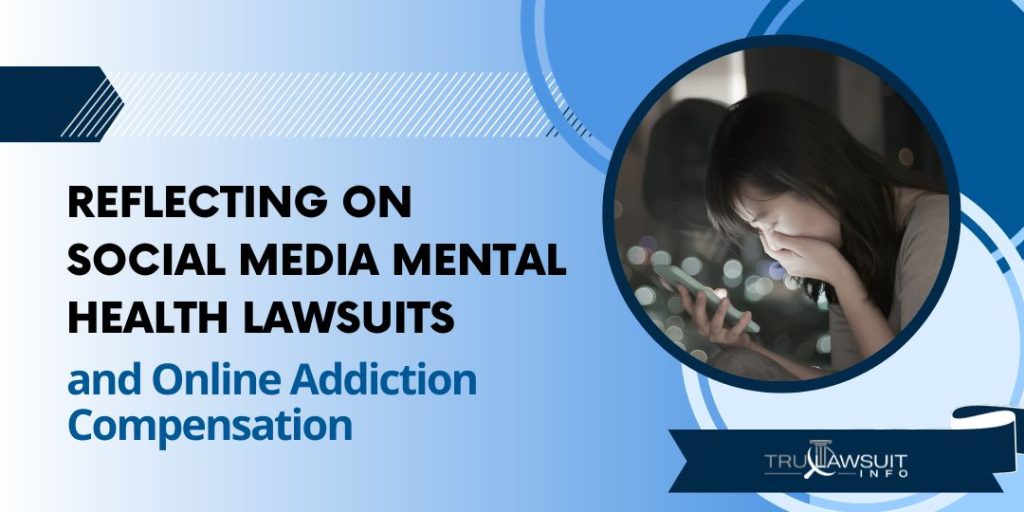
The escalating concern over social media’s impact on mental health, particularly among teenagers, is gaining legal traction.
From Snapchat to TikTok and Instagram, these platforms are under scrutiny for their potential role in exacerbating mental health issues and fostering addiction.
The evolving landscape of litigation around this issue underscores the necessity for users to be aware of their rights and possible avenues for seeking compensation.
Moreover, the rise in Class Action Multidistrict Litigations (MDLs), such as the case of Instagram addiction lawsuits, offers a new path for collective action.
It’s crucial to stay informed about these developments and consider legal advice if you or a loved one has been adversely affected by social media addiction.
Reach out today for a free case review to discuss your potential social media harm lawsuit.
Conclusion: Reflecting on Social Media Mental Health Lawsuits and Online Addiction Compensation
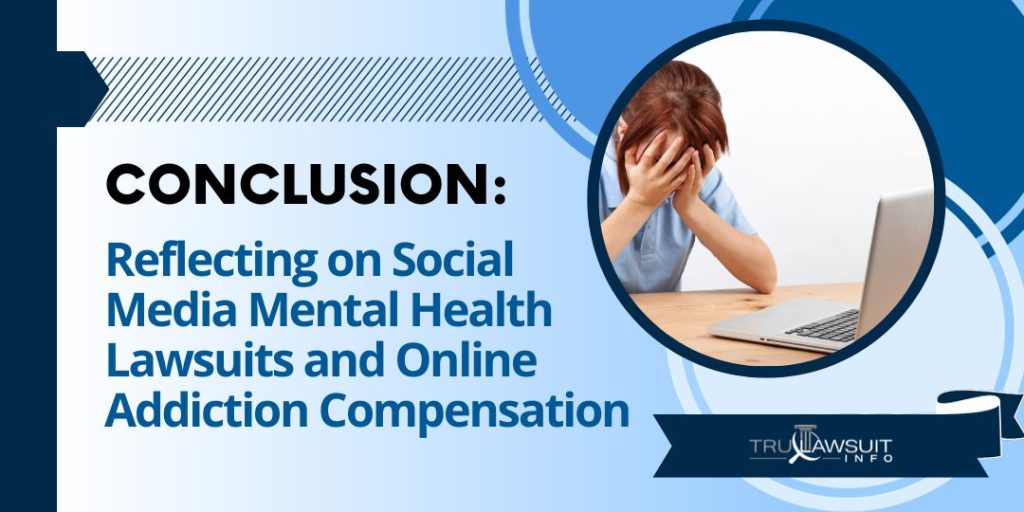
In conclusion, the confluence of social media mental health litigation and compensation for online addiction underscores the multifaceted nature of the challenges posed by digital platforms in contemporary society.
Individuals increasingly seek legal remedies for the negative psychological consequences associated with excessive online engagement.
The need arises for a balanced approach that navigates the complexities of personal responsibility and corporate accountability.
While lawsuits have the potential to illuminate the potential harms stemming from social media use, they also underscore the importance of promoting digital literacy and self-regulation in a world where online interactions have become an integral part of daily life.
As we move forward, it remains crucial to monitor these developments, initiate discussions on responsible technology use, and advocate for policies that safeguard mental health within the digital domain.
Achieving equitable solutions that protect individuals without impeding technological innovation will continue to be a significant challenge for legislators, technology companies, and society as a whole.
Frequently Asked Questions
-
What Is Social Media Addiction?
Social media addiction refers to excessive use of social media platforms that interferes with daily life activities, leading to negative impacts on physical and mental health.
-
Can I Sue A Social Media Company For My Addiction?
Yes, there have been cases where individuals have sued social media companies due to alleged addictive design features that led to adverse effects on their mental health.
-
How Do I Estimate Settlement Value In A Lawsuit?
Settlement values depend on several factors including the severity of harm suffered, loss of income, medical expenses incurred among others.
It’s advisable to consult with an attorney who can provide professional guidance.
-
What Is An MDL In Relation To Social Media Lawsuits?
A Multidistrict Litigation (MDL) refers to a procedure used in federal court system designed to speed up the process of handling complex cases like those involving multiple plaintiffs against common defendants such as social media companies.
-
How Can I Get Help If I Believe I Am Suffering From Online Addiction?
If you believe you’re suffering from online addiction, it’s crucial to seek professional help.
This may involve counseling or therapy.
If your addiction has led to adverse effects on your mental health, you might consider discussing your situation with a legal professional to explore potential compensation.

Experienced Attorney & Legal SaaS CEO
With over 25 years of legal experience, Jessie is an Illinois lawyer, a CPA, and a mother of three. She spent the first decade of her career working as an international tax attorney at Deloitte.
In 2009, Jessie co-founded her own law firm with her husband – which has scaled to over 30 employees since its conception.
In 2016, Jessie founded TruLaw, which allows her to collaborate with attorneys and legal experts across the United States on a daily basis. This hypervaluable network of experts is what enables her to share reliable legal information with her readers!
Have A Case?
Here, at Tru Lawsuit Info, we’re committed to helping victims get the justice they deserve.
To do this, we actively work to connect them with attorneys who are experts in litigating cases similar to theirs.
Would you like our help?
Tru Lawsuit Info is a reliable source of information about issues that may affect your health and safety, such as faulty products, data breaches, and environmental hazards.
Our team of experienced writers collaborates with medical professionals, lawyers, and advocates to produce informative articles, guides, and other resources that raise awareness of these topics.
Our thorough research provides consumers with access to reliable information and updates on lawsuits happening around the country. We also can connect consumers with attorneys if they need assistance.
Camp Lejeune's water contamination issue spanned several decades starting in the 1950s. Exposure to these chemicals has been linked to various serious health issues, including cancer, organ diseases, and death.
Research is increasingly suggesting a link between the use of Tylenol during pregnancy and the development of neurodevelopmental disorders, such as autism and ADHD, in infants.
Legal action is being taken against manufacturers of Aqueous Film-Forming Foam (AFFF), a chemical used in fighting fires. The plaintiffs allege that exposure to the foam caused health issues such as cancer, organ damage, and birth and fertility issues.
Have A Case?
Here, at Tru Lawsuit Info, we’re committed to helping victims get the justice they deserve.
To do this, we actively work to connect them with attorneys who are experts in litigating cases similar to theirs.
Would you like our help?







